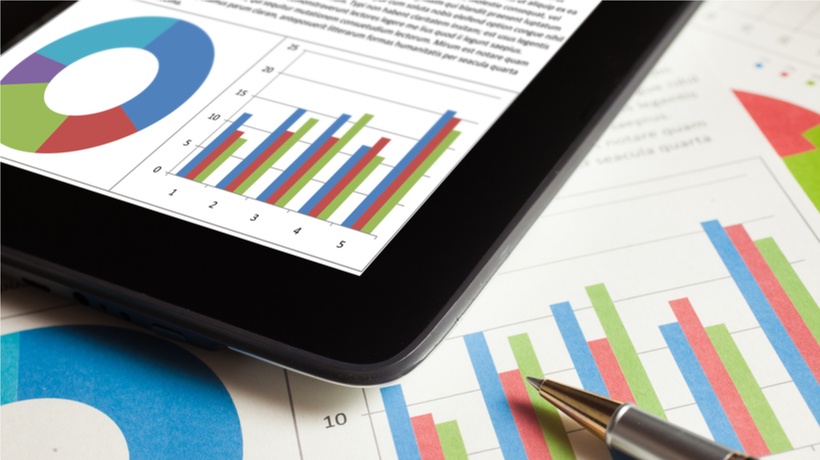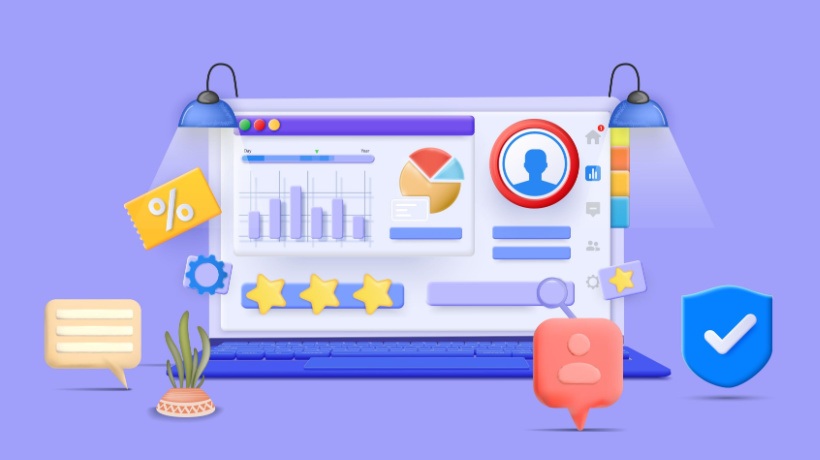How Learning Analytics Can Improve eLearning Design and Development
A major aspect (and a great challenge at the same time!) of instructional design and eLearning development is to know the behavior of your learners. This way, you can create an eLearning experience that offers the most benefit for the learners and ensure that every component of the eLearning course is helping them towards achieving their objectives and goals. One of the most effective ways to collect this invaluable data is through learning analytics. But why are learning analytics so important in eLearning, and how can they become a priceless resource for instructional designers?
The Basics of Learning Analytics
Learning Analytics are, in essence, the collection of data that is gathered while learners are engaging in the eLearning experience. Analytics also consist of the analysis and reporting of this information. Specifically concerning eLearning, vital pieces of data are recorded throughout the duration of the eLearning course such as learners’ score on a particular test/exam, how quickly they are progressing through a module, how many times have they have logged in, whether they have participated in a discussion board, etc. At the same time, Learning Analytics also offer online facilitators and instructors a comprehensive look at how a learner is performing, if he/she may need additional help with a particular lesson or subject, and even if the learner is likely to pass or not an eLearning course. Such data can then be used to make educational analysis and predictions that help to determine which learning materials are appropriate, useful or irrelevant for the learners. This is primarily based upon learner’s performance, skill level, and personal interests.
Why Learning Analytics Are So Important To Improve eLearning
Here are just a few of the most significant reasons for why learning analytics have the power to enhance eLearning experience and create more effective eLearning environments:
- Helps to predict learners’ performance
One of the most significant benefits of analytics is that they can provide insight into not only how a learner is performing today, but also about his/her future performance throughout the duration of the eLearning course. For example, online facilitators may foresee if a particular learner is likely not to pass the eLearning course, or if the learner is likely to pass the eLearning course if additional support is provided (such as further readings or tutoring sessions). Therefore, analytics can help to determine if learners may benefit from supplementary eLearning materials and/or peer/instructor aid throughout the eLearning course. This leads to higher grades and a more meaningful and complete eLearning experience. - Provides learners with a personalized eLearning experience
Through learning analytics, eLearning professionals and online instructors gain the ability to custom tailor eLearning experiences for each and every individual learner. If the data shows that a learner is taking a great deal of time to finish a particular eLearning module, then appropriate measures can be taken to offer learner more customized educational tools and eLearning course resources. For example, learners can be provided with links to sites that may help them to effectively comprehend the topic, or videos that allow them to learn through a more auditory/visual approach. No two learners are alike, and learning analytics gives eLearning professionals the power to ensure that no two eLearning experiences are alike either. - Increased learners’ retention rates
Given that more learners have the opportunity to enhance their performance thanks to learning analytics data and intervention; fewer learners will drop out or fail the eLearning course. If a learner isn't faring well throughout the eLearning course, then he/she is less likely to be motivated to remain enrolled. As a result, a learner will simply stop participating, which means that institutions and/or organizations may see a steep decrease dropout rate and/or profits and learners simply won't benefit from the informative eLearning courses that are being provided. - Helps to improve future eLearning courses
Not only can learning analytics help current learners, but can also help future learners as well. For instance, if the data shows that a vast majority of learners are finding one particular aspect of the eLearning course too challenging, then the developers can change the difficulty level of that specific eLearning module. This will lead to more powerful and impactful eLearning environments tomorrow, thanks to the data that has been collected today. - Boost in cost efficiency
If you can gain an in depth understanding of how the eLearning courses and their respective resources are being utilized, and how learners are actually acquiring information, and which aspects of the deliverable are successful (and which are falling short, for that matter), then you have the power to achieve higher quality eLearning at a lower cost. For example, if you determine, through analytics, that a particular section of the eLearning course simply isn't helping learners to achieve their learning goals, then you can devote your resources to either improving it or focus on another area that may be a more worthwhile investment.
Learning analytics, in many respects, have the ability to change the world of eLearning whether in educational institutions or in corporate training. With the data collected through analytics, instructional designers and eLearning professionals can offer learners the one key thing that all eLearning courses and training modules strive to offer: an unparalleled eLearning experience.
References:
- How can I use analytics to benefit my students?
- What is Learning Analytics?
- How Can Educational Data Mining and Learning Analytics Enhance Education Infographic
- Analytics for Learning and Teaching









